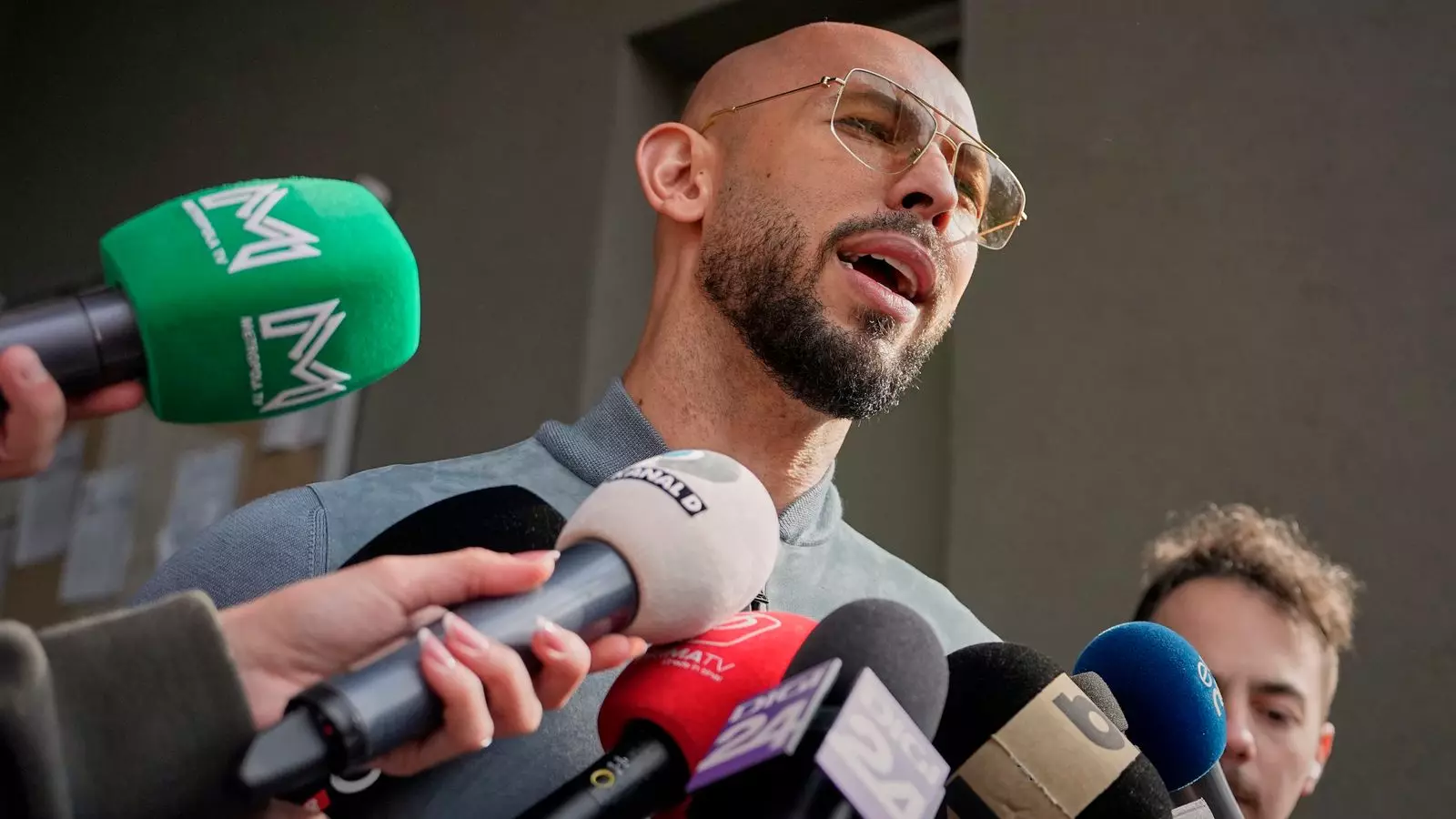In recent years, a troubling phenomenon has emerged in the UK educational landscape, as educators report a disturbing surge in misogyny and sexism fueled by the omnipresent influence of social media. Findings from a survey conducted by NASUWT, which canvassed the opinions of over 5,800 teachers, reveal that nearly 59% of them attribute the decline in students’ behavior to their social media habits. This stark statistic serves as a wake-up call, highlighting the urgent need for society to reevaluate the profound effects that platforms like TikTok and Instagram are having on our youth.
The association between social media and the breakdown of respectful interaction is no longer a mere speculation. Teachers have voiced their frustrations and concerns, with particular attention drawn to the concerning trend of young boys idolizing figures like Andrew Tate. Notably, one teacher recounted the unsettling experience of 10-year-old boys refusing to engage with her solely because of her gender, a clear reflection of the toxic ideals that such influencers propagate. It paints a grim picture of our future if left unchecked.
Influencer Culture: A Catalyst for Toxic Masculinity
The rise of influencer culture has redefined masculinity for a generation of young boys, and the narratives spun by disgraced figures like Andrew Tate have been particularly harmful. These individuals often promote an outdated and aggressive version of masculinity that not only denigrates women but also pressures young boys to conform to ideals that are toxic and archaic. Teachers are witnessing firsthand the repercussions of these ideals, with incidents of derogatory language and disrespect toward female staff being linked to exposure to these influencers. When young boys begin to equate masculinity with dominance and power, the consequences extend far beyond classroom walls, affecting societal norms and relationships at large.
This troubling trend has led educators to voice a unified call for action. Patrick Roach, General Secretary of NASUWT, emphasized that teachers alone cannot shoulder the burden of addressing these societal issues. It necessitates a collaborative effort among schools, parents, and even governmental bodies to create a shield against the disastrous influence of far-right and populist movements. The responsibility to safeguard children from the destructive ideologies proliferating on social media must be shared.
Government Response: An Overdue Discussion
In a proactive move, Prime Minister Keir Starmer recently convened a roundtable discussion at Downing Street to combat the surge of hatred and misogyny targeting young boys. The dialogue particularly focused on the influences of incel culture as portrayed in the Netflix drama *Adolescence*, indicating recognition at the highest levels of government that this is not just a school issue, but a national crisis that demands immediate attention. As the discussions unfold, they reveal a complex juxtaposition of fear and responsibility that our leaders must confront.
Concerns have also been raised by figures such as Tory leader Kemi Badenoch, who recounted personal experiences of loss linked to social media addiction. As she poignantly noted, the dangers of social media transcend age boundaries, impacting not just children but adults as well. Her argument for a ban on mobile phones within school premises highlights an essential component of tackling this issue—limiting the time children spend immersed in a digital world that too often harbors divisive rhetoric.
Education vs. Hate: A Call for Critical Thinking
Despite these grim challenges, there exists a glimmer of hope. The Department for Education asserts that education must function as an antidote to hate, promoting critical thinking and open discussions within the sanctuary of the classroom. This assertion is not just a hollow statement; it signifies an essential shift toward making education a proactive mechanism for combating the rising tide of ignorance and prejudice.
For educators, the classroom represents a crucial frontier where ideas can be contested and debated. It is imperative that schools become safe havens where discussions about gender equality, respect, and emotional intelligence are not only encouraged but also prioritized. We must empower teachers to address these issues head-on, equipping them with the tools and resources necessary to dismantle the misogynistic narratives that have taken root in today’s society.
As we look to the future, the alarming truths unveiled by this survey should serve not only as an indictment of our current state but as a rallying cry for collective action. We must confront the harsh reality of social media’s impact on our youth and refuse to allow influencers to dictate the social dynamics of our classrooms. Only through concerted, thoughtful efforts can we hope to reclaim dignity and respect within our educational environments.

Leave a Reply